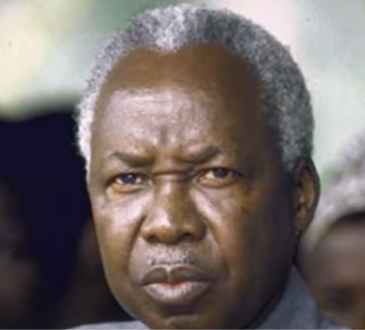The Tanzanian coat of arms adorning Victoria Station in London symbolizes the global recognition of a significant statesman, President Julius Nyerere. His visit to Britain, welcomed by Queen Elizabeth and other dignitaries, underscores the respect he commanded worldwide. In this article, we delve into the life and impact of Julius Nyerere, a pivotal figure in Tanzania’s history.
Julius Nyerere, fondly known as Mwalimu (meaning teacher in Swahili), emerged as a prominent post-colonial leader in Africa. As the first Prime Minister of independent Tanganyika and later the inaugural President of Tanzania following the union with Zanzibar, Nyerere shaped the nation’s destiny with his visionary leadership.
Born into the Zanaki ethnic group, Nyerere’s educational journey laid the foundation for his political ideology. His studies in Uganda and the UK fostered his unique blend of socialism and African communal values. Upon returning to Tanganyika, he embarked on a political career advocating for independence, spearheading the Tanganyika African National Union (TANU) to galvanize the masses.
Nyerere’s relentless efforts bore fruit when Tanganyika achieved independence in 1961. His leadership ushered in a period of peaceful transition, setting the stage for his ambitious policies aimed at national development. Central to his vision was the concept of “Education for Self-Reliance,” emphasizing the need for an educational system aligned with Tanzania’s socio-economic objectives.
Under Nyerere’s guidance, Tanzania pursued a path of African socialism, embodied in the Ujamaa (familyhood) philosophy. This ideology sought to revive pre-colonial traditions, fostering mutual cooperation and equitable distribution of resources. However, despite its noble intentions, the implementation of Ujamaa faced challenges, leading to economic strains and social unrest.
Nyerere’s legacy extended beyond Tanzania’s borders, as he championed Pan-Africanism and supported liberation movements across the continent. His principled stance against apartheid and colonial oppression earned him admiration from fellow African leaders. Notably, Tanzania’s intervention in Uganda under his leadership led to the removal of Idi Amin, illustrating Nyerere’s commitment to regional stability.
While Nyerere’s socialist policies shaped Tanzania’s identity, they also faced criticism for their economic ramifications. Despite advancements in education and social cohesion, Tanzania struggled with economic stagnation and dependency on foreign aid. Nyerere’s unwavering belief in socialism persisted even after his resignation, reflecting his dedication to uplifting the marginalized.
In retrospect, Julius Nyerere’s leadership evokes mixed sentiments, with admirers lauding his integrity and vision, while critics scrutinize the outcomes of his policies. His legacy endures as Tanzania navigates the complexities of modern governance, drawing inspiration from his ideals of unity and self-reliance.
In conclusion, Julius Nyerere’s imprint on Tanzanian history remains indelible, marking him as a revered figure in African politics. His journey from a humble teacher to a transformative leader reflects the resilience and aspirations of a nation striving for progress and prosperity. As Tanzania charts its course in the 21st century, the spirit of Nyerere continues to guide its path towards a brighter future.

















+ There are no comments
Add yours